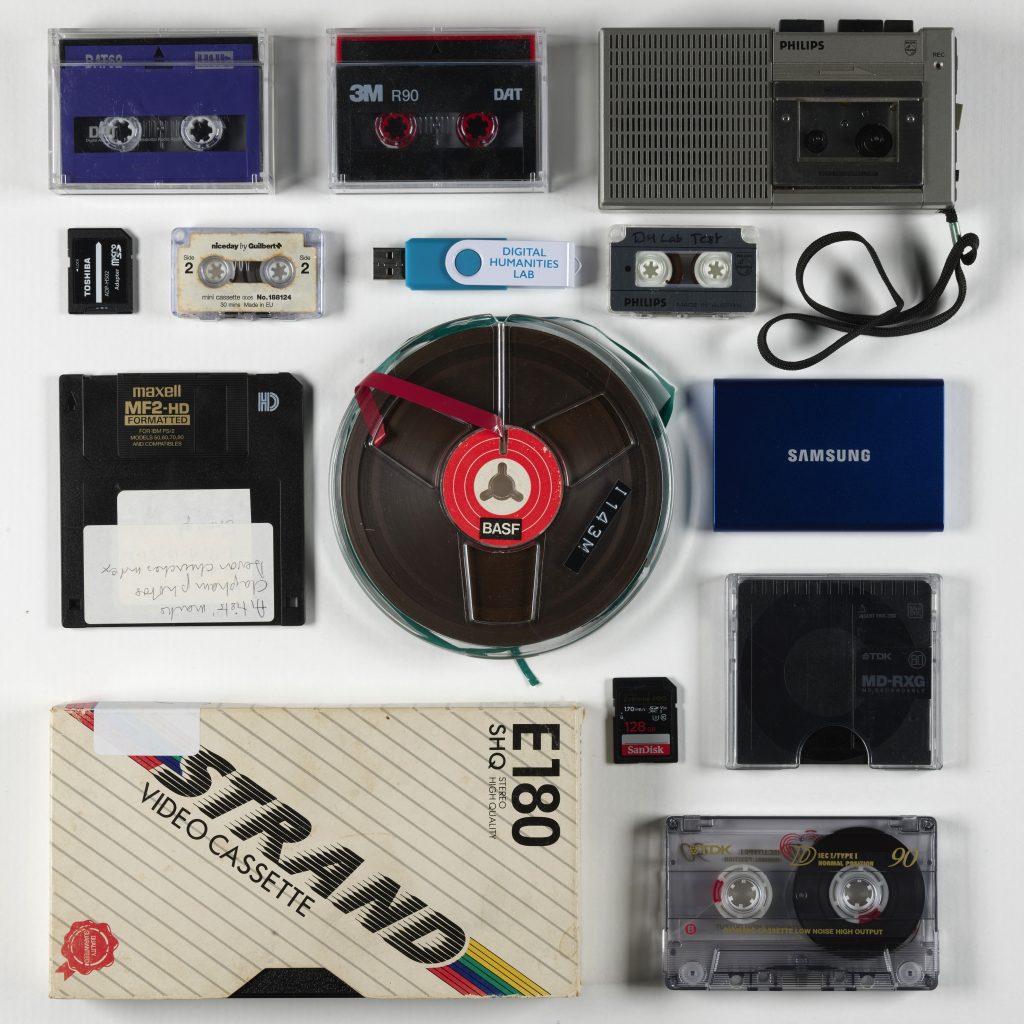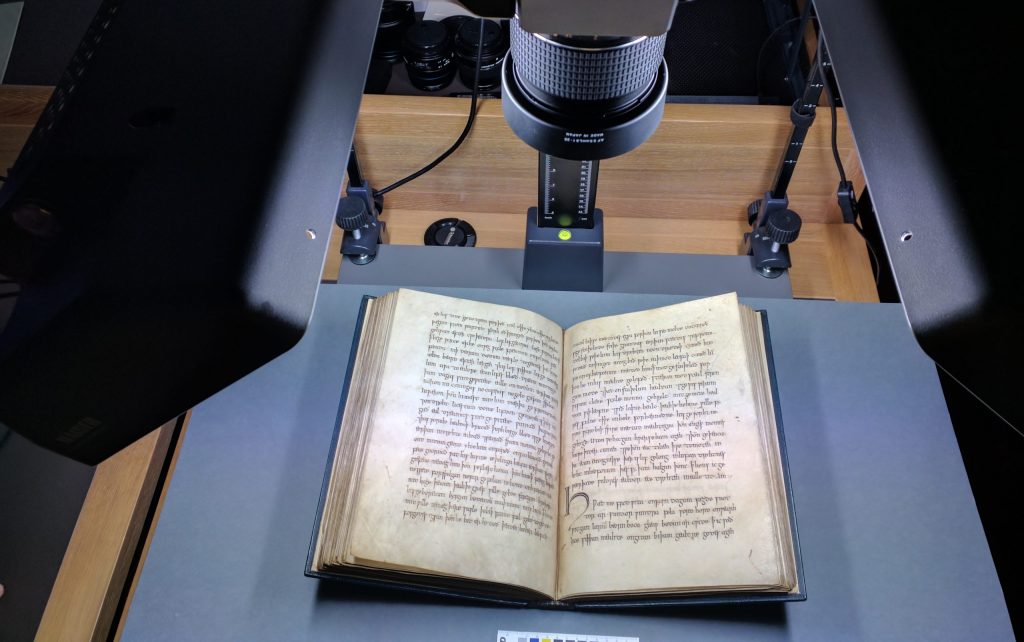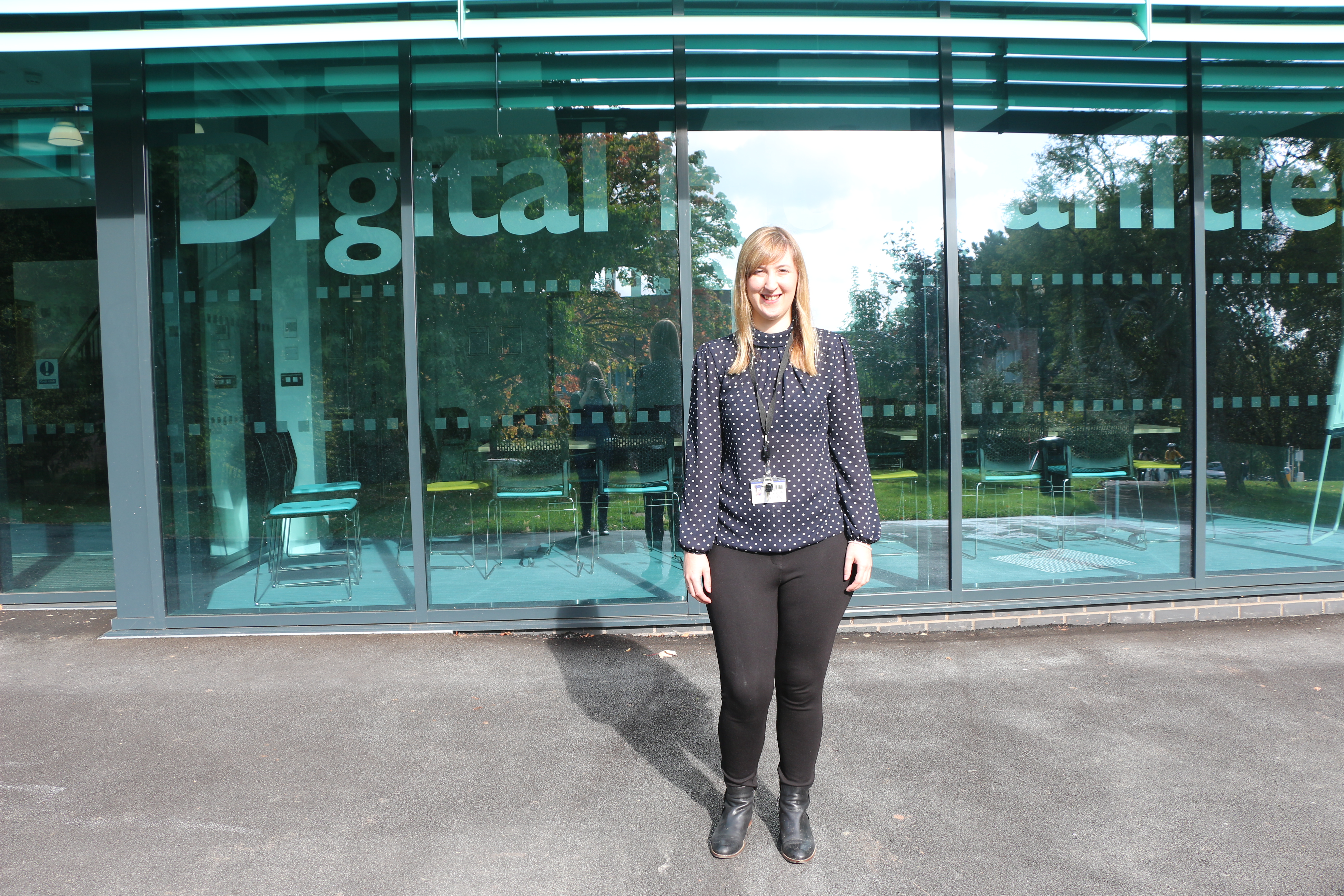It’s World Digital Preservation Day! Two years ago, we posted about the work the DH team were doing to ensure the long-term sustainability of archival collections and the digital content we create in the Lab. Since then, we’ve been collaborating with colleagues from across the university to work harder than ever on digital preservation, and World Digital Preservation Day 2023 seemed like a great opportunity for an update on what we’re working on.
Developing our capabilities in capturing legacy media
One of the Lab’s specialities is safely capturing the contents of legacy media. In the past few years, the lab team and intern team have collaborated with colleagues in the Drama Department to digitise several extensive collections, including VHS recordings of Exeter City Football Club, and cassette tapes containing interviews with farmers from around Devon and Cornwall from the 1980s.
We’ve also been working on expanding the range of early digital media we can work with – particularly to help the University Special Collections and Bill Douglas Cinema Museum access and preserve some of their older and more challenging collections. We are currently setting up two ingest workstations with tools like Bitcurator, and creating guidance for colleagues, such as a Field Guide to Legacy Media to help with identifying media types and the file formats and hardware they may require. Student interns in the DH lab and the BDCM have already been putting the workflows to the test capturing content from hard drives and floppy disks, with very successful results so far!
Archiving project websites
Our portfolio of research websites has also expanded since 2021, and we continue to work on making sure the data and interfaces of our websites will be accessible in the long term. Our first step has been using the Wayback Machine to create copies of website interfaces, to make sure a version will be available online even after the live site becomes unavailable.
We have also been learning how to use tools like Browsertrix-crawler and Conifer to create our own web archive files. Finding ways to use the software to capture the wide range of content included on our websites has been a challenge, but we are now able to make our own copies of most of our sites, enabling us to deposit them in ORE (the University of Exeter data repository) and Zenodo, for secure long-term storage.
Following our own learning journey, we are working on providing guidance to help web site users find and view the different sorts of web archives that we hope to make available.
Open-Access Data
As well as web archives, we have also been starting to deposit project datasets in data repositories, both to ensure their long-term safety and to make open-access copies available. The Exeter Digital Humanities community on Zenodo now includes datasets from the Lawforms project and the Hardy’s Correspondents project, available under CC-BY licenses. As current projects wrap up, we hope to continue to expand the collection of datasets there.
Giving advice and raising awareness
Finally, and perhaps most importantly, the DH team continues to work to raise awareness about digital preservation both within the university and beyond. Part of our role is supporting research teams from the early stages of developing grant applications right through to archiving project outputs, and we provide advice and support for implementing good data practices throughout. We provide regular training workshops on how to plan data management for funding applications. Recently, we have also given presentations about digital sustainability to conferences of researchers and heritage professionals, to encourage them to consider the long-term safety of their data from the beginning of their projects.
Two years on from our first post, it’s great to look back and see how far we have come. We have really expanded the skills and equipment we have available, and the support we’re able to provide. However, we are pleased to say we are still learning and developing our capabilities, and collaborating with colleagues to put new skills into practice. Digital preservation is a never-ending task, and the University collections continue to provide a steady stream of new and exciting challenges for us all.



